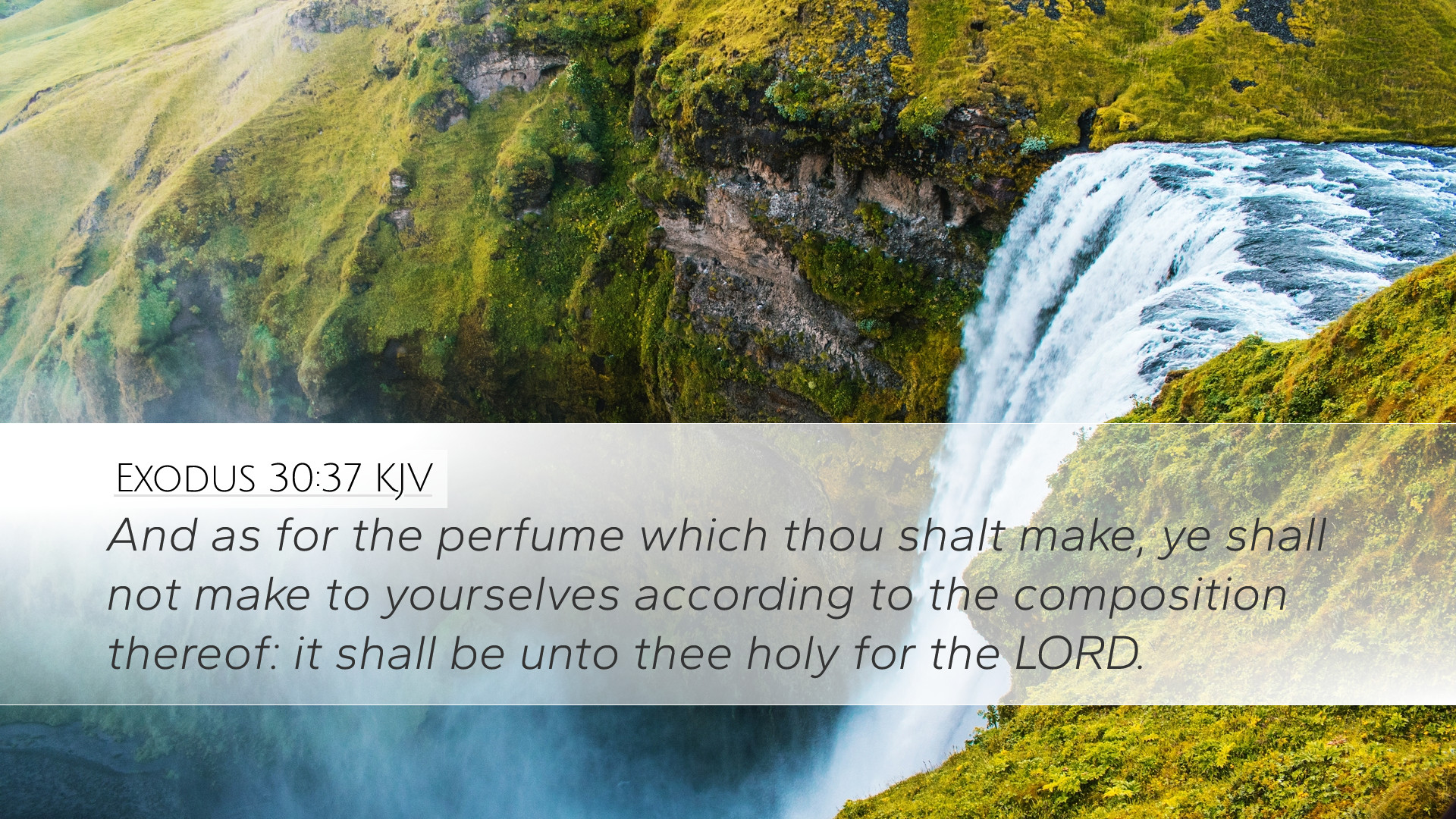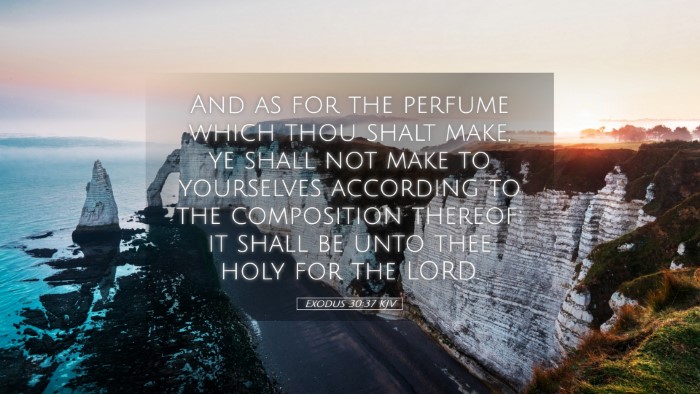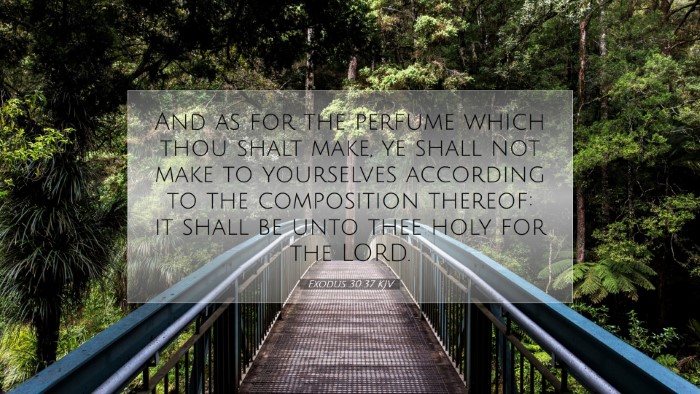Commentary on Exodus 30:37
Verse: Exodus 30:37
"And as for the perfume which you shall make, you shall not make any like it for yourselves; it shall be holy to you for the Lord."
Introduction
Exodus 30:37 is a pivotal verse within the broader context of the instructions given to Moses concerning the tabernacle and the offerings therein. The significance of the holy anointing oil and the sacred perfumes is enriched by their intended exclusivity and sacred usage.
Contextual Overview
This verse falls within the architectural and ceremonial blueprint of the tabernacle, as detailed in Exodus. Previous verses outline the components of the holy anointing oil used for the consecration of priests and sacred artifacts. As we explore this text, it is crucial to understand the theological and practical implications embedded within these instructions.
Theological Insights
From a theological perspective, the command not to make similar perfumes for personal use emphasizes God's desire for holiness and separation. The exclusivity of the perfume signifies the distinction between the sacred and the profane. Matthew Henry, in his commentary, notes that these anointing substances were not merely physical items but held a spiritual significance intended to point towards a deeper truth about God's sanctity.
Specialization of the Holy
Henry elaborates that the products created for divine worship must remain distinct from everyday use. The instruction serves to underline a vital principle in the worship of Israel; that which is sacred should not be trivialized. This reflects the ongoing theme of holiness throughout Scripture, which calls believers to recognize the difference between that which is dedicated to God and that which is common.
Practical Application
The implications of this verse extend far beyond the ancient Israelite community. Adam Clarke emphasizes that in contemporary Christianity, believers are called to live lives that reflect the holiness of God. Much like the sacred perfume, our actions and worship must be distinguished from secular standards. We are reminded that our lives should exude a 'fragrance' of Christ, set apart for divine purposes.
The Fragrance of Christ
As Paul writes in 2 Corinthians 2:15, “For we are the aroma of Christ to God among those who are being saved and among those who are perishing.” Clarke's commentary suggests that this verse should motivate pastors and congregants alike to consider how their worship and witness act as a holy fragrance, distinctly reflecting Christ to the world.
Historical Context
Historically, the ingredients and the method of preparation were meticulously prescribed (see Exodus 30:34-36). As Albert Barnes details, the specific mixture of spices and oil reveals the artistry and dedication involved in the creation of a product solely designated for worship. The process was not just ritualistic but bore significant meaning, representing purity, dedication, and divine approval.
Symbolism of the Perfume
The perfume symbolizes more than mere sensory pleasure; it embodies the nature of divine relationship established through worship. It speaks to the intoxicating beauty of God’s presence, echoing the sentiments expressed in the Song of Solomon about the beloved's fragrance. The absence of similar perfumes reflects a call to remember that worship is exclusive to God and cannot be replicated in mundane environments.
Conclusion
Exodus 30:37 encapsulates essential doctrines regarding holiness, exclusive worship, and the unique nature of God's requirements. The insights from commentators like Henry, Barnes, and Clarke reveal profound truths that resonate with contemporary believers, urging both reverence and distinctiveness in our relationship with God. This verse challenges us to reflect on what makes our worship sacred and how we live out the holiness God demands, ensuring that our lives are indeed a constant offering unto Him.
Reflection Questions
- How can we ensure our acts of worship remain distinct from secular practices in our current culture?
- In what ways can we cultivate a life that exemplifies the 'fragrance' of Christ?
- How does understanding the sacredness of items designated for worship deepen our appreciation for our own worship practices?


